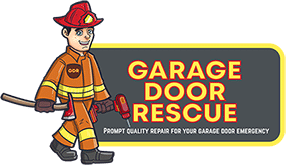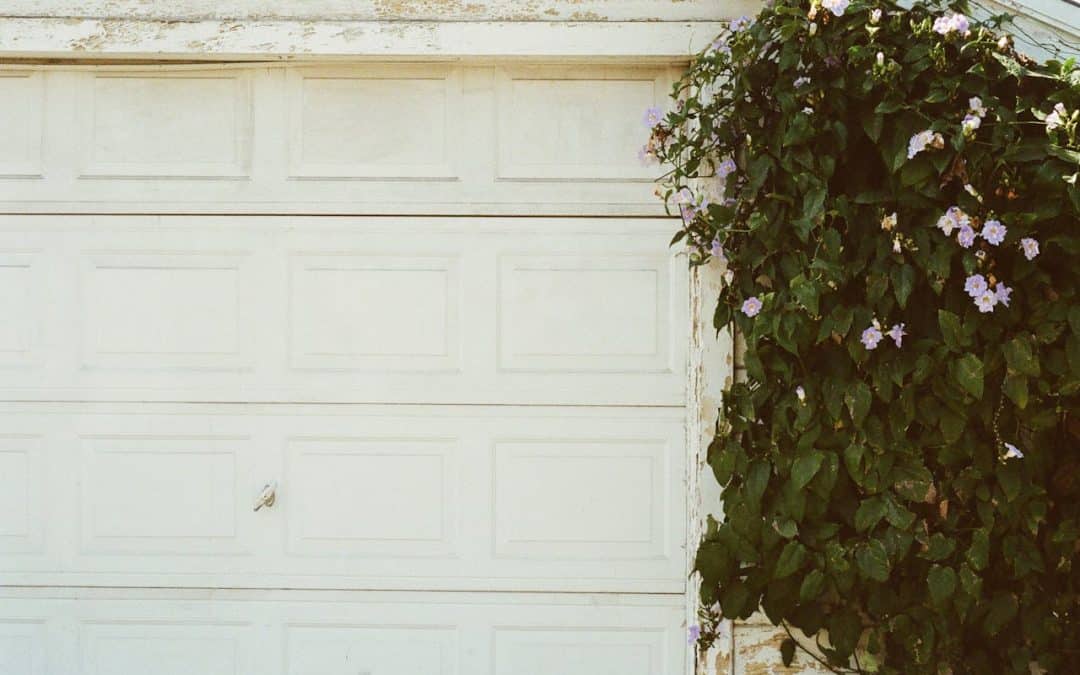A well-functioning garage door is essential for the safety and convenience of your home. However, like any mechanical system, garage doors can develop a range of issues over time. Understanding these problems is the first step toward addressing them effectively.
You might hear strange noises when you open or close your garage door. Unusual sounds such as grinding, squeaking, or banging can signal mechanical issues that need immediate attention. Ignoring these noises could lead to more severe problems and costly repairs down the line.
Besides noises, you may notice problems with how the door moves. It might respond slowly, move unevenly, or not fully open or close. These movement issues can indicate problems with the door’s balance or its mechanical components. Finally, visible signs of wear and tear like frayed cables, rusty springs, or cracked panels can compromise your door’s functionality. Likewise, issues with the garage door opener, such as unresponsive remotes or blinking lights, can disrupt the smooth operation of your door.
By recognizing these common garage door problems early, you can take steps to fix them before they become major issues. This article will guide you through the typical signs of garage door trouble and offer solutions to keep your door running smoothly.
Unusual Noises When Operating the Door
Grinding Sounds
Grinding sounds when you operate your garage door often indicate a problem with the door’s moving parts. This could be due to lack of lubrication on the tracks, rollers, or hinges. Metal-on-metal contact without proper lubrication can cause these grinding noises. To resolve this, apply a high-quality garage door lubricant to all the moving parts. If the noise persists, it might be a sign of worn-out parts that need replacing. Regular maintenance can help prevent this issue and keep your door running smoothly.
High-Pitched Squeaks
High-pitched squeaks are commonly heard when the door’s hinges or rollers are dry or worn out. These squeaks can create quite an annoyance. The first step in addressing this is to inspect the hinges and rollers for visible wear. If they look worn or damaged, replacing them is the best solution. If they appear to be in good condition, lubricating the parts should eliminate the squeaking. Make sure to use a lubricant designed specifically for garage doors, as this can make a noticeable difference.
Banging or Rattling
Banging or rattling sounds can be alarming and are usually signs of loose hardware or misaligned tracks. Loose bolts, nuts, or screws can cause parts of the door to move excessively, creating these noises. To fix this, inspect all the hardware and tighten any loose components. Additionally, check the alignment of the tracks to ensure the door moves smoothly along them. If the door continues to bang or rattle, it may be a good idea to call a professional for a thorough inspection to prevent potential damage.
Door Movement Issues
Slow Response Time
A slow response time when opening or closing your garage door can be frustrating. This could be caused by problems with the garage door opener or the door’s mechanisms. First, check if the opener’s settings need adjustment; most openers have a speed setting you can modify. Ensure that the door’s tracks and rollers are clean and lubricated to reduce friction. If these steps don’t resolve the issue, there may be a deeper mechanical problem that requires expert attention.
Jerky or Uneven Movement
When a garage door moves jerkily or unevenly, it often points to issues with the door’s balance or the state of its springs and cables. The door should move smoothly if everything is functioning correctly. Start by inspecting the springs and cables for visible wear or damage. If they appear to be in good condition, they might simply need to be adjusted. Balancing the door is crucial; a door that is out of balance can put unnecessary strain on the opener and other components. If you’re not confident in doing this yourself, a professional can ensure it’s done safely and correctly.
Door Not Opening or Closing Fully
A door that doesn’t open or close fully is a common problem that can have various causes. It might be due to obstructions in the tracks, issues with the garage door opener’s settings, or problems with the door’s sensors. Begin by checking the tracks for any debris or blockages and clear them out. Next, inspect the sensors to ensure they are properly aligned and free of dirt. Lastly, look at the settings on your garage door opener; it might need recalibration to fix the range of motion. If these fixes don’t work, there could be a mechanical issue that requires professional repair.
Visible Signs of Wear and Tear
Frayed or Flipped Cables
Garage door cables play a crucial role in the operation of the door. Over time, these cables can become frayed or even flip off their pulleys, causing operational issues and posing safety hazards. You might notice the door moving unevenly or hear unusual noises if the cables are compromised. Regularly inspect the cables for signs of wear and tear. If you see fraying or if a cable has come off its track, it’s best to replace it immediately. Handling garage door cables can be dangerous due to the high tension, so consider having a professional perform this task.
Rusty or Damaged Springs
Springs are essential for lifting and lowering your garage door. Rust or damage to these springs can make the door difficult to operate and may lead to a sudden failure. Look for visible rust, gaps in the coils, or any deformation in the springs. Regular maintenance, such as applying a lubricant that prevents rust, can extend their lifespan. If you find any significant damage, replacing the springs is necessary for safe operation. Given the tension springs are under, it’s often safer and more efficient to have a professional technician handle replacements or repairs.
Warped or Cracked Panels
The panels of your garage door can suffer damage over time due to weather conditions, accidents, or simple wear and tear. Warped or cracked panels can affect the door’s alignment and overall functionality. Check the panels for any visible signs of warping, cracks, or other damage. While minor issues can sometimes be repaired, severely damaged panels may need replacing. Maintaining the panels can also improve the door’s appearance, adding to the curb appeal of your home. Regular inspections can help you catch and address these problems early.
Malfunctioning Garage Door Opener
Remote Control Problems
Remote control issues can be frustrating, especially when the garage door refuses to operate at the push of a button. First, check the batteries in your remote control to ensure they’re not dead. If the batteries are fine but the remote still isn’t working, try reprogramming it according to the manufacturer’s instructions. Sometimes, these issues arise from signal interference or problems with the remote’s internal components. If troubleshooting doesn’t resolve the issue, consider replacing the remote control.
Inconsistent Operation
Inconsistent operation of the garage door opener can indicate problems with the mechanism itself or with the door’s balance. The opener might work intermittently, stop halfway, or behave unpredictably. Check the door’s balance by disconnecting the opener and manually lifting the door halfway. If it doesn’t stay in place, the door may be unbalanced. Inspect the tracks and rollers to ensure they are clean and lubricated. If the problem persists, the opener’s internal components may need inspection and repair by a professional.
Opener Light Blinking or Not Functioning
A blinking or non-functioning opener light can signal various issues, from a simple bulb replacement to more complex electrical problems. First, try replacing the light bulb in the opener. If the new bulb also fails to work, check the wiring connections for signs of damage or corrosion. Blinking lights can also indicate error codes specific to the opener’s model. Consult the user manual to identify any error codes and follow the recommended troubleshooting steps. For complex issues, it’s wise to consult a professional who can diagnose and fix the opener safely.
Conclusion
Being proactive in identifying and addressing common garage door problems can save you both time and money. Unusual noises, movement issues, visible wear and tear, and malfunctioning openers are all signs that your garage door needs attention. Regular maintenance and timely repairs can prevent these issues from escalating into more significant problems that require costly fixes.
Listening to your garage door and observing its operation can give you important clues about its condition. Simple steps like lubricating moving parts, tightening loose hardware, and replacing worn-out components can make a big difference. However, some issues might be beyond a simple DIY fix and may require professional assistance.
If you’re experiencing any of these problems with your garage door, don’t wait until it becomes a bigger issue. Contact Garage Door Rescue for expert advice and professional maintenance and garage door repair services. Our team is here to help you keep your garage door in perfect working condition. Call us today to schedule an appointment!

